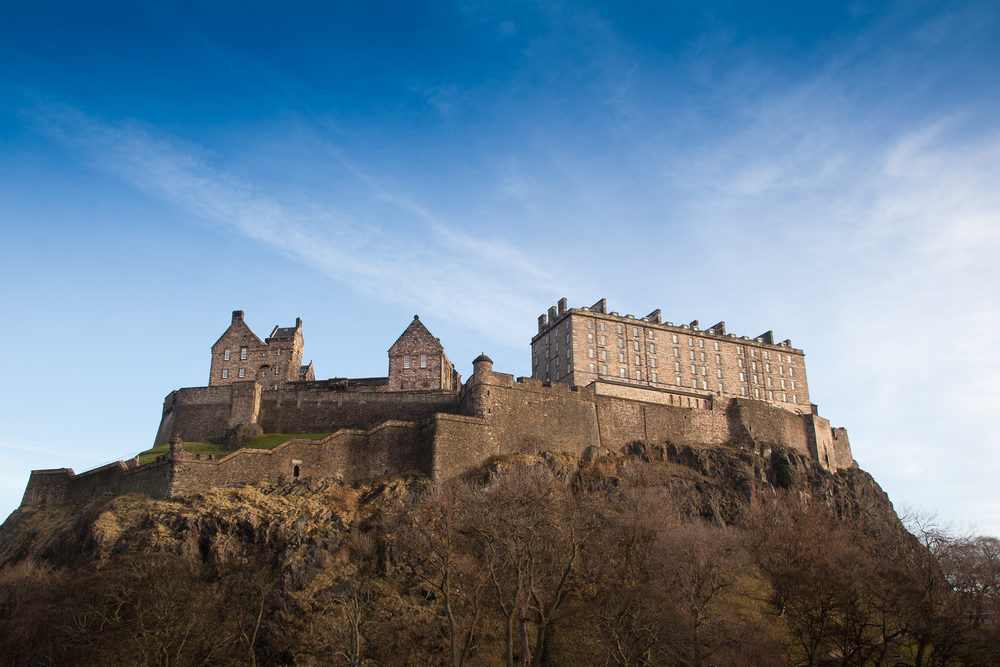

The Scottish capital of Edinburgh is to install Wi-Fi hotspots on buses, trains and in public spaces, after it was forced into canning fibre broadband plans.
The rollout is part of a revised £10.7m plan by the City of Edinburgh Council, which would have seen the rollout of more superfast broadband infrastructure across the city. However, that Connected Capital plan had to be scrapped because of concerns it breached European anti-competition rules.
Those rules state that public money should not be used to support broadband rollouts in urban areas where such deployments are already commercially viable. Edinburgh was one of the first areas to be included in BT’s nationwide superfast broadband network rollout.
The original Edinburgh Council plan would have seen the installation of fixed-line superfast broadband to 90 percent of residents and businesses in the city, by using £9.7 million of the £10.7 million awarded to the council last September as part of the UK government’s Super-Connected Cities initiative.
The remaining £1m was to be handed, in the form of vouchers, to small businesses to pay for broadband provision. Open Wi-Fi hotspots would have also been installed in core areas in the city centre.
That scheme was two years in the planning, but then had to be abandoned at the last minute because of European concerns, and the council was given just three weeks to come up with an alternative package.
Now the revised Edinburgh Connected Capital plan will see Wi-Fi hotspots rolled out to buses, trains and public spaces like museums, libraries and galleries. Small businesses will be given support to access broadband connections, and a new festivals archive will be created.
The money will come from the Broadband Development UK (BDUK) fund, run by the Department for Culture, Media and Sport.
“While the plans are markedly different to what was originally proposed, securing the money for the city will bring great benefits for Edinburgh residents and local businesses,” said Councillor Alasdair Rankin, finance and budget convener, in an emailed statement to TechWeekEurope.
“We’re looking forward to hearing from BDUK soon to find out whether our bid was successful.”
Under the revised plans, the £10.7m will be divided up as follows: £2.7m will be paid for the installation of Wi-Fi in public transport and council buildings; £3m in vouchers will go towards to small businesses; and £4m will be used to support start-up businesses in key sectors such as the creative industries from July.
The final £1m will be used for an online archive of programmes and reviews from previous festivals.
The programme should be completed by 31 March 2015.
Are you fluent in the language of the Internet? Find out with our quiz!
All Cybertrucks manufactured between November 2023 and February 2025 recalled over trim that can fall…
As Musk guts US federal agencies, SEC issues summons over Elon's failure to disclose ownership…
Moonshot project Taara spun out of Google, uses lasers and not satellites to provide internet…
Pebble creator launches two new PebbleOS-based smartwatches with 30-day battery life, e-ink screens after OS…
Amazon loses appeal in Luxembourg's administrative court over 746m euro GDPR fine related to use…
Nvidia, xAI to participate in project backed by BlackRock, Microsoft to invest $100bn in AI…
View Comments
I am on Rose St, the most central exchange in Edinburgh. It does not appear on BT's fibre optic roll out plan, and BT Openreach have told me that it is not commercially viable to upgrade it. They suggested that I approach Edinburgh Council, which I have done.
This article seems to say that an urban exchange is automatically assumed to be viable and thus ineligible for public funds, even if the telecom company says that it is not. It therefore looks as if I will never get fibre optic.
I too am in the central Edinburgh Rose street exchange, i feel we have to do something to kickstart BT into reviewing upgrading Rose Street. If you want to discuss further please get in touch jimmccoll@btclick.com